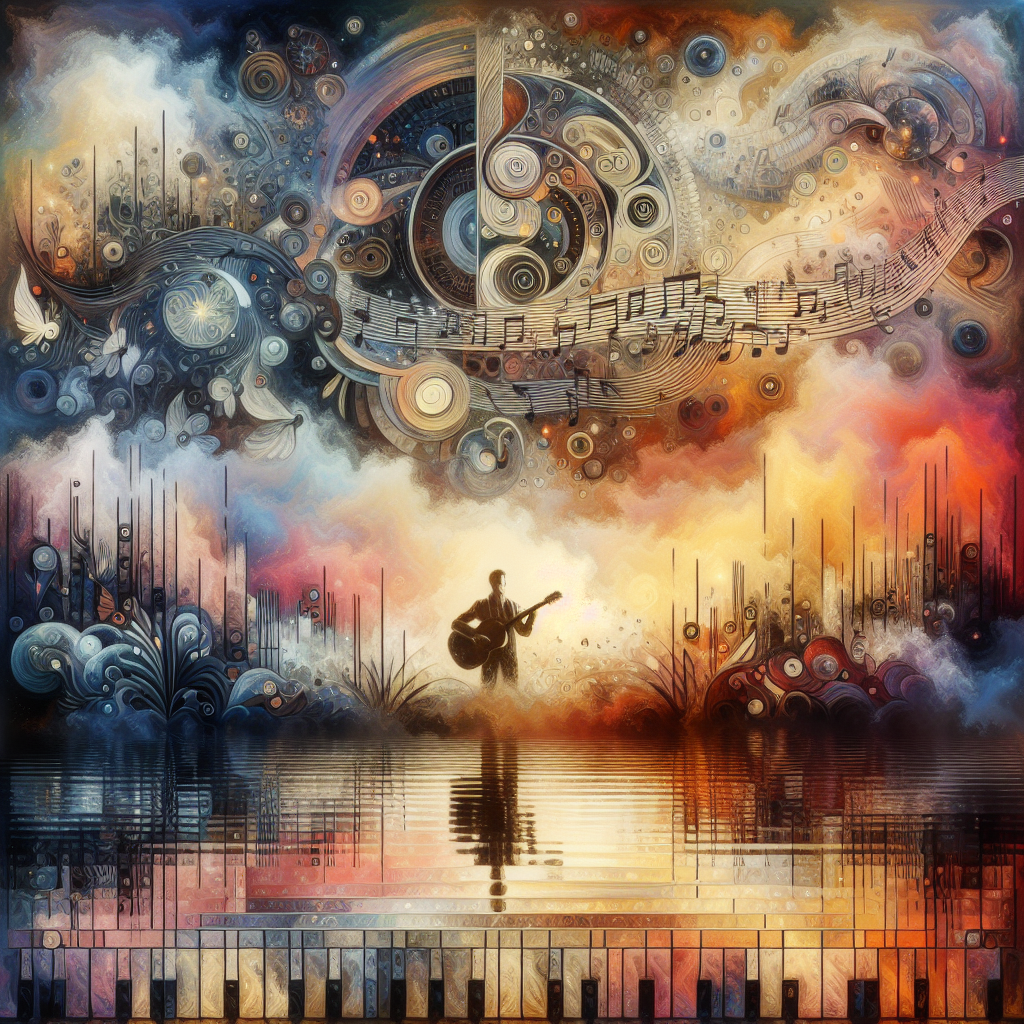Discover The Beatles’ Haunting Classic: ‘Eleanor Rigby’ – A Masterpiece of Storytelling!
Introduction
"Eleanor Rigby," one of The Beatles’ most famed tracks, emerges from the 1966 album Revolver, marking a profound departure from the band’s earlier, more conventional rock and pop sound. Encapsulating the essence of loneliness and societal neglect, the song pushes the boundaries of popular music, integrating classical elements and forthright storytelling. Its significance lies not just in its novel orchestration but also in its poignant exploration of human desolation, establishing it as a cornerstone in both The Beatles’ illustrious career and the broader music genre of its time.
Themes and Lyrical Content
At its core, "Eleanor Rigby" delves into themes of isolation, existential sorrow, and the often unnoticed lives of ordinary people. The narrative revolves around two central characters: Eleanor Rigby, a lonely woman who "lives in a dream," and Father McKenzie, a disheartened priest devoid of a supportive congregation. The lyrics, initially penned by Paul McCartney but collectively refined by the band, weave a stark yet poetic portrayal of solitude and lost human connections.
The lines "All the lonely people, where do they all come from? / All the lonely people, where do they all belong?" serve as a poignant refrain, amplifying the song’s central theme. The narrative structure, akin to that of a short story, meticulously juxtaposes Eleanor’s uneventful and somber life with her futile deeds, such as picking up rice after a wedding where she is merely a witness to others’ joy, and Father McKenzie’s repetitive, meaningless rituals.
Musical Techniques
Musically, "Eleanor Rigby" is a stark contrast to The Beatles’ earlier repertoire. Gone are the guitars and drums typically associated with rock; instead, the song features a double string quartet arranged by producer George Martin. This classical ensemble lends a somber, almost baroque quality, enhancing the lyrical themes of despondency.
The song utilizes AEolian cadences and harmonic minor structure, which contribute to its haunting and melancholic tone. The string arrangement, characterized by its staccato phrasing and dynamic shifts, conveys tension and enhances the bleak narrative. For example, the sharp, dissonant chords that punctuate the line "Ah, look at all the lonely people" echo the jarring reality of Eleanor and Father McKenzie’s world.
The absence of a traditional band setup and the inclusion of strings exemplify The Beatles’ willingness to experiment and innovate, underscoring their transition from pop idols to boundary-pushing artists. The minimalist yet impactful arrangement encourages listeners to focus intently on the story being told, making the emotional weight of the lyrics even more pronounced.
Cultural, Social, and Historical Context
Released in a time of societal upheaval and transformation, "Eleanor Rigby" resonates with the 1960s’ growing disenchantment with materialism and traditional communal values. The song’s depiction of neglected individuals can be seen as a reflection of the era’s existential angst and the isolation brought on by modernity.
In the context of The Beatles’ career, "Eleanor Rigby" symbolizes a shift from outward expressions of love and youth culture to introspection and social commentary. The Beatles were no longer just a soundtrack to the swinging sixties; they were now commentators on the human condition. Songs like "Eleanor Rigby" underscored their depth and versatility, proving that pop music could bear the weight of serious, even somber themes.
Historically, the song aligns with the post-WWII generation’s quest for meaning amid rapid societal changes. The character of Eleanor Rigby, with her inconspicuous existence and unremarkable death, echoes the sentiments of many who felt lost in the rush of progress and the fading of traditional structures. Father McKenzie’s futile existence as a clergyman with no flock symbolizes religion’s questioned role in a rapidly secularizing society.
Legacy and Lasting Influence
"Eleanor Rigby" stands as a testament to The Beatles’ unparalleled capacity for innovation and storytelling. It propelled the band into uncharted territory, demonstrating that they could transcend the conventions of pop music to explore profound and universal themes.
The song’s influence is evident in its enduring presence across various mediums and genres. Countless artists have covered "Eleanor Rigby," each interpretation confirming its status as a versatile and timeless piece. Its string arrangement has inspired numerous classical crossover works, while its thematic depth has influenced generations of songwriters to tackle more serious and reflective subjects within the framework of popular music.
In academia, "Eleanor Rigby" often features in discussions of narrative songwriting and music’s capacity to convey complex human emotions and societal issues. It stands as a prime example of the storytelling potential within music, encouraging a deeper appreciation for lyrics as a form of literature.
Reflective Questions and Takeaways
As we reflect on "Eleanor Rigby," several questions arise: What does the song tell us about the human experience of loneliness and our society’s response to it? How does the integration of classical music elements into a pop song alter our perception of its themes? In today’s era of digital connectivity, do the themes of isolation and unnoticed lives still resonate, perhaps more profoundly?
Ultimately, "Eleanor Rigby" invites us to ponder the unseen lives that surround us and the roles we each play in the broader tapestry of society. It urges introspection and empathy, reminding us that beneath the façade of daily life, many may still feel the pangs of loneliness and seek a sense of belonging.
In a contemporary context, the song’s relevance endures, prompting us to consider how art can both reflect and challenge societal norms, and how music, even in its most somber expressions, can foster connection and understanding. The haunting melody and poignant words of "Eleanor Rigby" continue to echo, inviting each new generation to uncover its timeless truths and reflect on their own place within the ever-evolving human story.
Got more questions? Our personalized Music Explorer AI assistant is here to help. Click here to start a conversation!
[Advertisement]
Curious about the deeper messages in your favorite songs? Discover how ANY track relates to positive biblical principles with Music and Scripture GPT from BGodInspired.com. Click here to uncover insights you might not have noticed!
[Advertisement]

